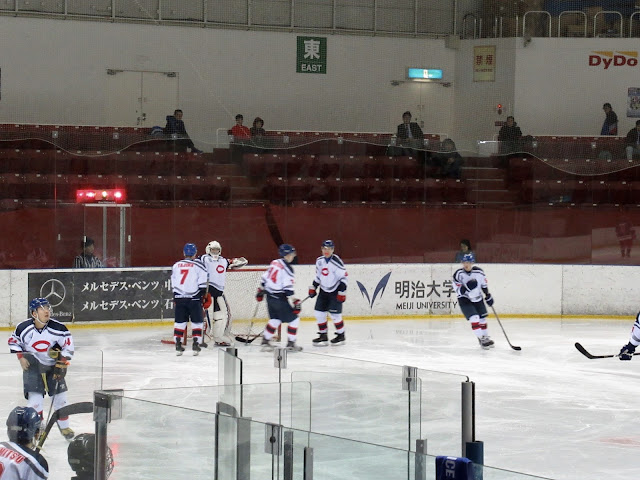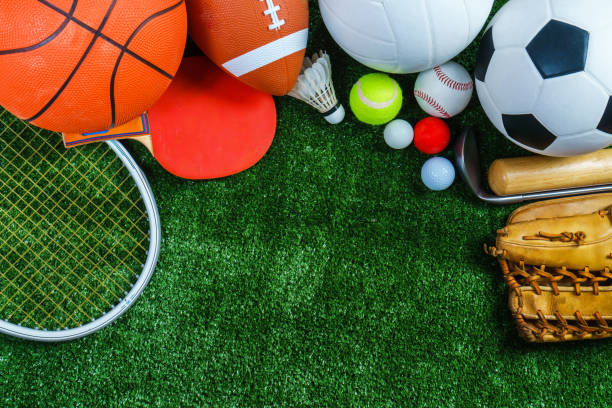Japan is known worldwide for its contributions
to technology and its rigorous standards of quality. Japanese companies often
follow concepts such as 'KAIZEN' // 改善 (i.e., 'improvement') – referring to an
entity’s initiatives of improving all of its functions, systems, practices,
etc., and involving all members, at any level, regardless of position,
responsibilities or hierarchy. With such a philosophy, the Japanese society has
rapidly integrated technological advancements in numerous fields in order
innovate and overcome prior limitations.
Alike Japan, many countries
are working towards innovating and adopting the latest trends in this sense. Accordingly,
technology is revolutionizing the world of sports globally, providing creative
solutions and a competitive edge. Nowadays, staying up to date with the latest
technological advancements in sports is becoming a real necessity, rather than
a luxury, so as not to fall behind everyone else, and have a means of
complementing your strategies.
This being said, let’s
talk about some of the ways technology may help your team grow and what
evidence exists in this sense. The examples presented in this article refer
only to the most recent innovations and are mainly drawn from ice hockey – these
may, however, be applied to other sports. [1]
[2]
[3]
[4]
[5]
[6]
EQUIPMENT INNOVATIONS
Numerous studies have been carried out
regarding the most adequate materials and techniques for improving sports tools
and equipment. Nowadays older materials are being replaced by much more
resistant, personalized, and hence, safer alternatives.
Examples include protective gear that is made to perfectly suit each
player’s body, by means of 3D scanning tools. Additionally, foam and plastic may
be removed from the protective pads, reducing players’ weight, which results in
enhanced speed. Advancements are noticeable also in ice skates which repel
water and aid speed, or carbon-graphite sticks adjustable for the needs /
preferences of any player. All these technologies are helping athletes maximize
their performance and safety.
LIVE RECORDING AND ANALYSIS TOOLS
These devices help with improving officiating
processes during matches, making sure that events are judged as accurately and
fairly as possible. Among other leagues, the NHL has adopted such strategy, using
advanced replay functions that enable live games to be watched and evaluated by
multiple stakeholders, both at the stadium and elsewhere, allowing officials to
check the legitimacy of every goal. Such functions also enable fans to re-watch
the most heated moments of the game. iPads are as well increasingly
popular as more apps that provide recording features appear on the market. Videos
are being used to tag and review important game moments during breaks, which
helps coaches adapting their strategies in real-time. These apps may also serve
as learning tools, through re-visualization and the use of gathered data.
DATABASES AND STATISTICS
Data is essential when
it comes to overall performance. It allows coaches and athletes to learn from
past situations, more objectively evaluate current strategies and abilities,
while helping out with identifying the best solutions for improvement. Many
technologies mentioned in this article incorporate data gathering in their
systems. Database may store various statistics like player stats, analysis of
important game moments, match results, etc.
TRAINING SOFTWARE
Such software aim to
maximize practice sessions, monitor progress and, based on collected data,
advise within decision-making and strategy. Some particularly useful tools are
drill animation apps, which allow coaches to easily customize drills before training
sessions. The latest advancements include a wide range of features, including
3D visualization, that may help coaches communicate training objectives faster
and more effectively. Graphics can reflect
training frequency, allowing coaches to keep track of the team’s progress.
Additionally, other types of software are designed to hone essential skills
that players need for injury prevention (e.g., spatial awareness, anticipation,
cognitive functions).
WEARABLE TECHNOLOGY AND SENSORS
These could range from step counters and pulse
readers, to chips that are integrated into clothing and equipment, all of which
enable the collection of valuable data and statistics. These tracking devices may
help capturing the players and puck’s movements and, by using infrared cameras
placed around the arena, data is being generated. Attached sensor technologies
can enhance training and monitor athletes’ progress.
VIRTUAL REALITY
Virtual reality (i.e., VR) technology is also
used to improve training. Through recording practice sessions, players can view
these again in 3D with a standard VR device. Players are therefore enabled to observe
their actions and their surroundings, and are given the chance to more
objectively identify errors and opportunities that they have omitted during the
game, where everything happens at a fast pace and emotions could potentially
blur focus and responsiveness.
Lastly, it is important to note that technology
could never truly replace all benefits of human initiative and interaction,
especially within sports, where cooperation, effort, willingness, and emotions
are oftentimes the essence of the performance itself. Technology can, however,
offer a competitive advantage to coaches, teams, or athletes if used adequately,
having been proven to enhance users’ understand of game strategies, teams, own
selves, and provide solutions for further development.
REFERENCE LIST
Andrews,
C. (2017) Sports tech: Ice hockey kit and players get high-tech scrutiny at
McGill [online] available from https://eandt.theiet.org/content/articles/2017/01/sports-tech-canadian-research-group-tests-the-latest-ice-hockey-equipment/
British
Ice Hockey (2017) Technology revolutionising ice hockey [online]
available from https://www.britishicehockey.co.uk/post/technology-revolutionising-ice-hockey/
Freepik
(2020) Video Camera Recording a Football Match [online] available from http://img.freepik.com/free-photo/video-camera-recording-a-football-match_1137-258.jpg?size=338c&ext=jpg
FreshPhotography
(2017) AAMI PARK EVENT PHOTOGRAPHY - Training Session with Juventus [online]
available from https://www.freshphotography.com.au/melbourne/2017/10/sports-events-photographer-012.jpg
Getty
Images (2020) Sports Equipment Pictures, Images and Stock Photos [online]
available from https://www.istockphoto.com/photos/sports-equipment
Hardegger,
M., Ledergerber, B., Mutter, S., Vogt, C., Seiter, J., Calatroni, A. and Tröster,
G. (2015) ‘Sensor technology for ice hockey and skating’ IEEE 12th
International Conference on Wearable and Implantable Body Sensor Networks (BSN),
1-6. Cambridge, MA. DOI: https://ieeexplore.ieee.org/abstract/document/7299368/authors#authors
Hawk-Eye
(2020) ICE HOCKEY [online] available from https://www.hawkeyeinnovations.com/sports/ice-hockey
Last
Word On Sports (2019) How Technology is Changing the Face of Ice Hockey
[online] available from https://lastwordonhockey.com/2019/11/18/how-technology-is-changing-the-face-of-ice-hockey/
Shutterstock
(2019) Intel Accelerates Data-Centric Technology with Memory and Storage
Innovation [online] available from https://dv-website.s3.amazonaws.com/uploads/2019/03/kf_immemdbs_040419.jpg
Sunbears (2020) Features [online] available from https://sunbears.com/
Thinkstock
(2017) AI will transform information security, but it won’t happen overnight
[online] available from https://images.techhive.com/images/article/2017/03/virtual_reality_robot-100715124-large.jpg
Universal
Class (2020) Intro to PC Troubleshooting and Repair [online] available
from https://cdn.4uc.org/i/images/crn/8900071/computer.jpg









Lovely article!
ReplyDeleteAnother example of data being used for fitness is in running. On my iPhone I track my daily runs to see the distance I've covered, calories burned and my route!
Hi Georgi, thanks for the comment! The technology nowadays is indeed helpful for for us to track our health, exercise, and even diet!
DeleteStay healthy!